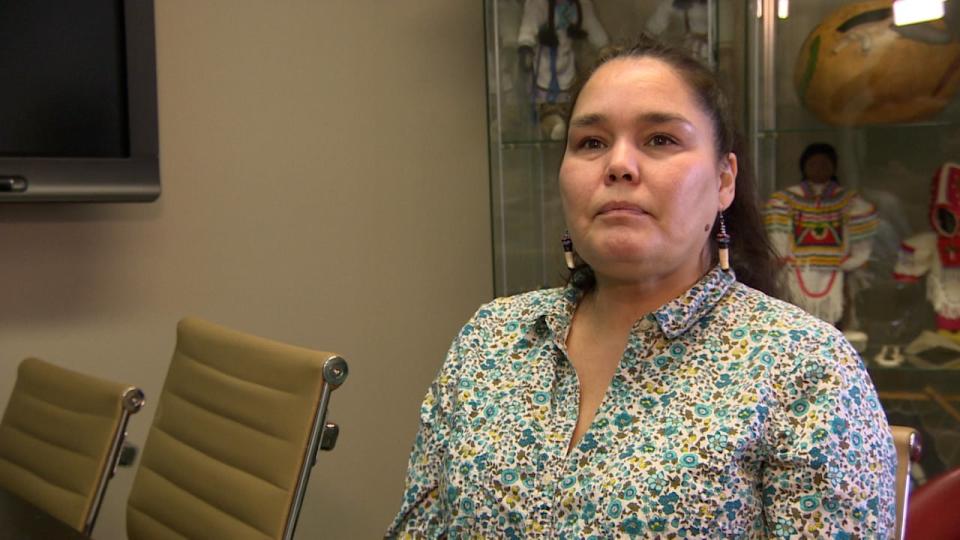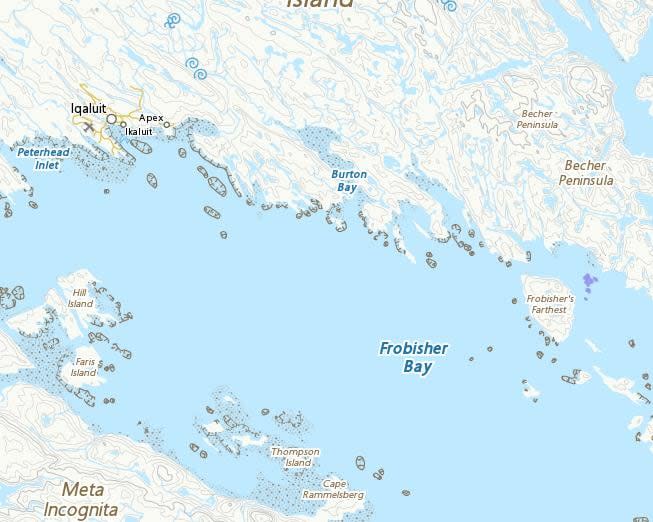CAUTION: This brief article opinions an offending slur. The phrase is consisted of when for context, after that or else stayed away from.
Years after a press to relabel a set of islands known as with a racial slur in Nunavut, the territorial federal authorities states it’s servicing it.
The Old Squaw Islands, the principle identify recognized by the Nunavut federal authorities, lie roughly 40 kilometres southeast of Iqaluit.
That strikes close to to dwelling for Madeleine d’Argencourt– each geographically and straight.
“[The term] is derogatory. My first-born daughter is half First Nations,” she said.
The Inuk feminine, that stays in Iqaluit, said she’s been known as the s-word previous to down southern. It is a racial slur to clarify First Nations and varied different Indigenous females.
Now, it’s one among 15 detrimental identify the Nunavut federal authorities is desirous to formally relabel inside the following yr, as detailed in its 2024-26 business plan.


Madeleine d’Argencourt, envisioned on March 4, 2022, inIqaluit (Steve Silva/ CBC)
Change requires ‘extensive procedure’ gov’ t states
Madeleine d’Argencourt said it shouldn’t take years to make the adjustment– and there’s no assurance that can definitely be performed by 2025 because the Nunavut federal authorities states.
She point out a street in Apex she successfully obtained relabelled to Angel Street.
“Changing a name is straightforward paperwork. I called three people, and got it done in one night.”
But Kaalai Whittle, the Nunavut federal authorities’s supervisor of heritage, said there may be an in depth process, that features co-ordination with authorities authorities to formally make the adjustment on the map, together with space assessments.
Now, she said, the territorial federal authorities has the suitable sources to put the process transferring.
“It has been a priority,” she said. “But we’re making it a priority even more so, since we have the resources to tackle and work on this.”
Iqaluit-Sinaa MLA Janet Pitsiulaq Brewster said when she initially learnt in regards to the identify of the islands close to Iqaluit in 2022, she elevated the difficulty within the legislature.


A map on Natural Resources Canada’s website revealing the place of the islands birthing a racial slur of their identify (highlighted in purple, applicable aspect of the picture close to Frobisher’s Farthest). (Natural Resources Canada)
Brewster said the process should be performed applicable and encompass appointment with senior residents.
“I think there’s still momentum, through acts of reconciliation, to make those changes,” she said.
What will the brand-new names be?
According to Natural Resources Canada archives, the s-word was embraced as the principle identify for the islands on June 1, 1961, after a hydrographic examine watercraft bearing that identify.
There isn’t any acknowledged Inuktitut identify for the islands close to Iqaluit, Whittle said.
Despite the islands being unoccupied and ceaselessly immersed by the development, she said it’s important for Iqalummiut to have the ability to redeem the land with a standard identify.
After all, she said, residents have truly at the moment embellished the islands with casual names for navigational capabilities.
“So I want to listen to the people and stick with the names that they were already placed with back then,” she said.


Janet Pitsiulaaq Brewster, the MLA for Iqaluit-Sinaa, envisioned onNov 17, 2021. (Matisse Harvery/Radio-Canada)
The Inuit Heritage Trust has truly decided standard identify to alter 11 of the decided detrimental names. Whittle said the others will definitely start frequent names, or merely no identify in any approach.
As for the s-word, there are 15 places all through the nation that also formally have phrases in its identify, in response to the Canadian Geographical Names Database.
In a created declaration, Natural Resources Canada knowledgeable CBC there’s recurring job to take care of detrimental identify, which would definitely remove them from fundamental authorities maps.






